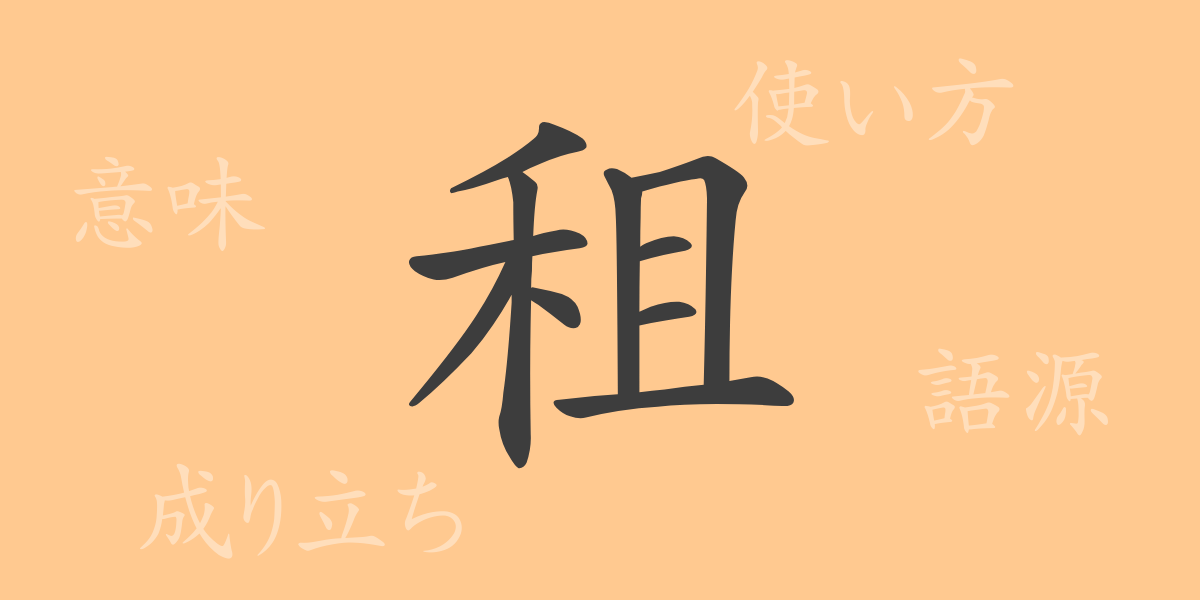Kanji, embodying the beauty and complexity of the Japanese language, holds significant cultural importance. The commonly used Kanji “租” (ソ) occupies a special place in Japanese lexicon due to its economic implications and historical background. This article explores the meanings, origins, and usage of “租” (ソ), aiming to deepen the understanding for learners of the Japanese language.
Origins of 租 (ソ)
The Kanji “租” (ソ) was transmitted from ancient China and originally signified a granary for storing grain. The radical “禾” (ノギヘン), a pictograph representing grain, is used in this character. Over time, the concept of storing grain in a granary and lending it out evolved into the meanings associated with “rental” and “lease,” developing further to signify taxes and lending.
Meaning and Usage of 租 (ソ)
In modern Japanese, “租” (ソ) primarily refers to taxes and rental fees. It is commonly used in terms like “租税” (ソゼイ), which denotes taxes collected by the government or local authorities, and “地租” (チソ), which refers to land rent. It is also utilized in economic terminology.
Readings, Stroke Count, and Radical of 租 (ソ)
The Kanji “租” (ソ) is notable for its form and pronunciation:
- Readings: The on’yomi (Sino-Japanese reading) is “ソ” (ソ), and there is no specific kun’yomi (native Japanese reading).
- Stroke Count: It consists of 10 strokes.
- Radical: The radical is “禾” (ノギヘン).
Phrases, Idioms, and Proverbs Using 租 (ソ) and Their Meanings
Phrases and idioms involving “租” (ソ) are predominantly related to taxation and finance. For example, “租税” (ソゼイ) refers to taxes in general, and “租税回避” (ソゼイカイヒ) means tax evasion. Additionally, the term “租界” (ソカイ) historically refers to areas under foreign jurisdiction. These phrases have played significant roles in Japan’s social and historical contexts.
Summary on 租 (ソ)
While the Kanji “租” (ソ) is primarily used in economic and legal contexts and might not frequently appear in everyday life, through terms like “租税” (ソゼイ) and “地租” (チソ), it is closely linked to concepts integral to our lives. Through this article, understanding the history and meanings encapsulated in “租” (ソ) helps us gain deeper insights into the Japanese language.

























